Alzheimer's Awareness
Alzheimer's disease is a type of dementia that causes problems with memory, thinking and behavior. Symptoms usually develop slowly and get worse over time, becoming severe enough to interfere with daily tasks. Dementia is a general term for memory loss and other cognitive problems that are serious enough to interfere with daily life.
In 2019, approximately 660,000 Californians over 65 years of age were estimated to live with Alzheimer's disease, which accounted for approximately 11 percent of the nation's Alzheimer's disease prevalence (5.8 million people). Between 2019 and 2040 a doubling in the number of Californians living with Alzheimer's disease and related dementias is expected. This increase will affect all regions of the state across various demographic groups.
Currently there is no cure for Alzheimer's, but treatments for symptoms are available and research continues.
Use these tools to help promote Alzheimer's awareness. Learn more about Alzheimer's disease in California. Visit the CDPH Alzheimer's Disease information page.
Social Media
To use these images, click on each one to enlarge the image, then right click and "save as."
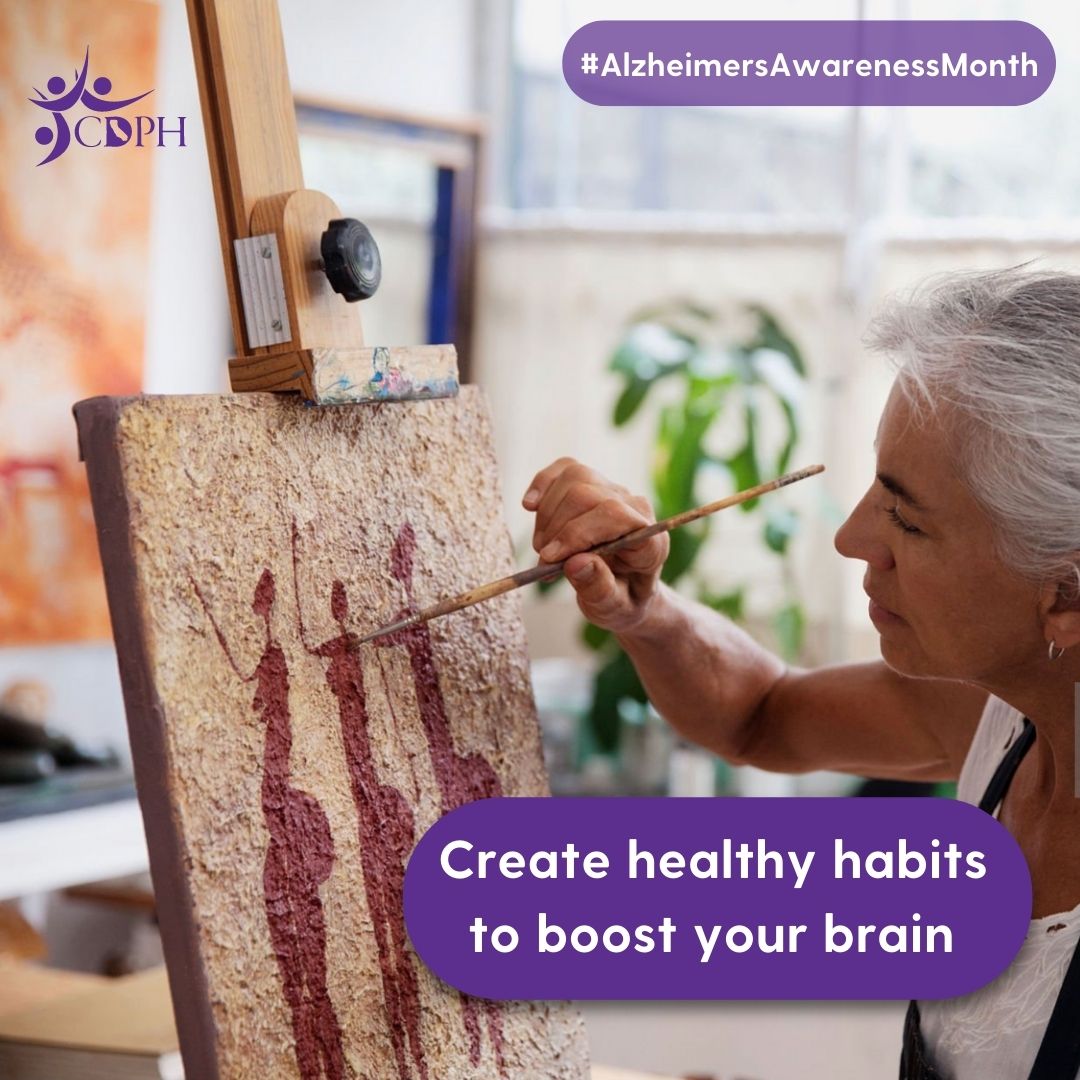 Suggested Messaging: People can reduce their risk for Alzheimer’s disease and related dementias by staying mentally and socially active. Did you know that completing a crossword puzzle, reading a book, or doing something artistic can help boost your brain? For more tips on healthy habits to boost your brain go to: https://www.alz.org/help-support/brain_health/10_ways_to_love_your_brain
#AlzheimersAwarenessMonth #NationalFamilyCaregiversMonth
|
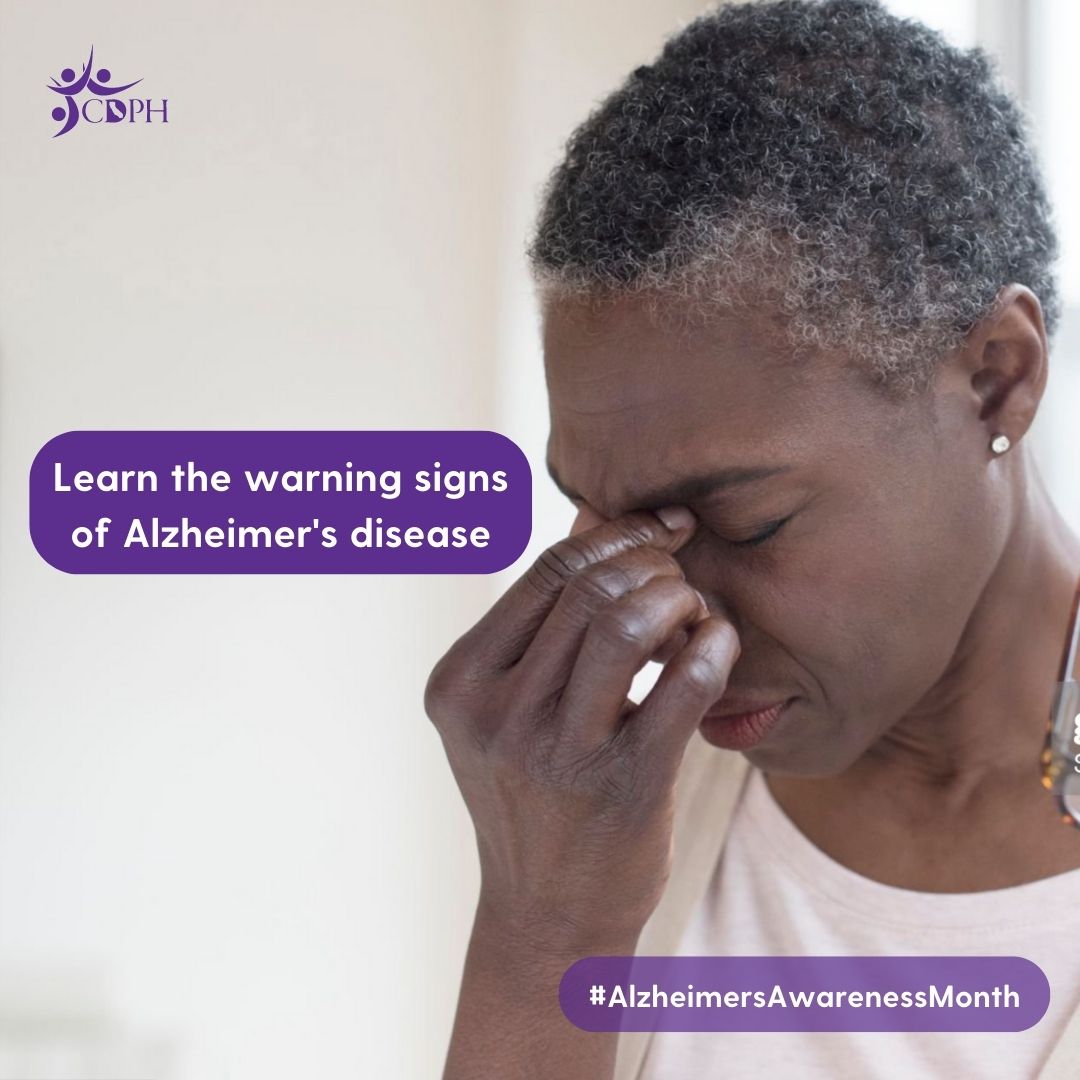 Suggested Messaging:
November is Alzheimer's Awareness Month. Alzheimer's disease is the most common form of dementia and causes problems with memory, thinking, and behavior. Alzheimer's disease is not a normal part of aging. Someone with Alzheimer's disease may show signs of: - Memory loss that disrupts daily life, such as getting lost in a familiar place or repeating questions.
- Difficulty completing familiar tasks.
- Confusion with time or place.
- Change in mood, personality, or behavior.
If you or a loved one shows signs listed above, consult your health care provider. For more information on Alzheimer's disease and dementia, see https://www.cdc.gov/aging/healthybrain/ten-warning-signs.html
|
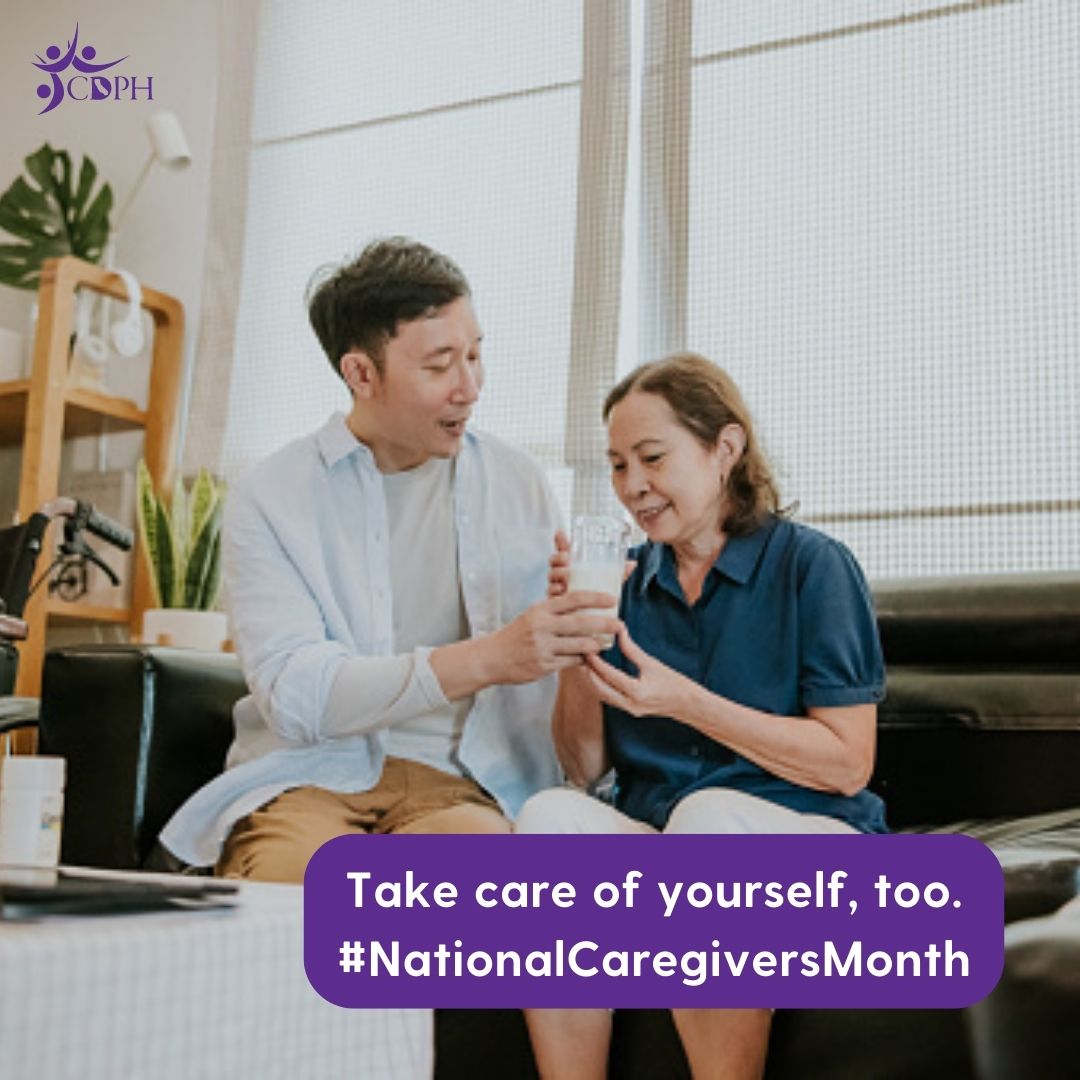 Suggested Messaging: Often people do not realize that they are considered a caregiver, but if you are providing care or assistance to a family member or a friend, YOU are a caregiver. The California Department of Aging has compiled a list of resources to assist you in this role. Whether you are a new or seasoned caregiver, protecting the health and safety of you and your loved ones is always a top priority. Visit: https://www.aging.ca.gov/covid19/Family_and_Friends_Caregiver_Resources/ #AlzheimersAwarenessMonth #NationalFamilyCaregiversMonth
|
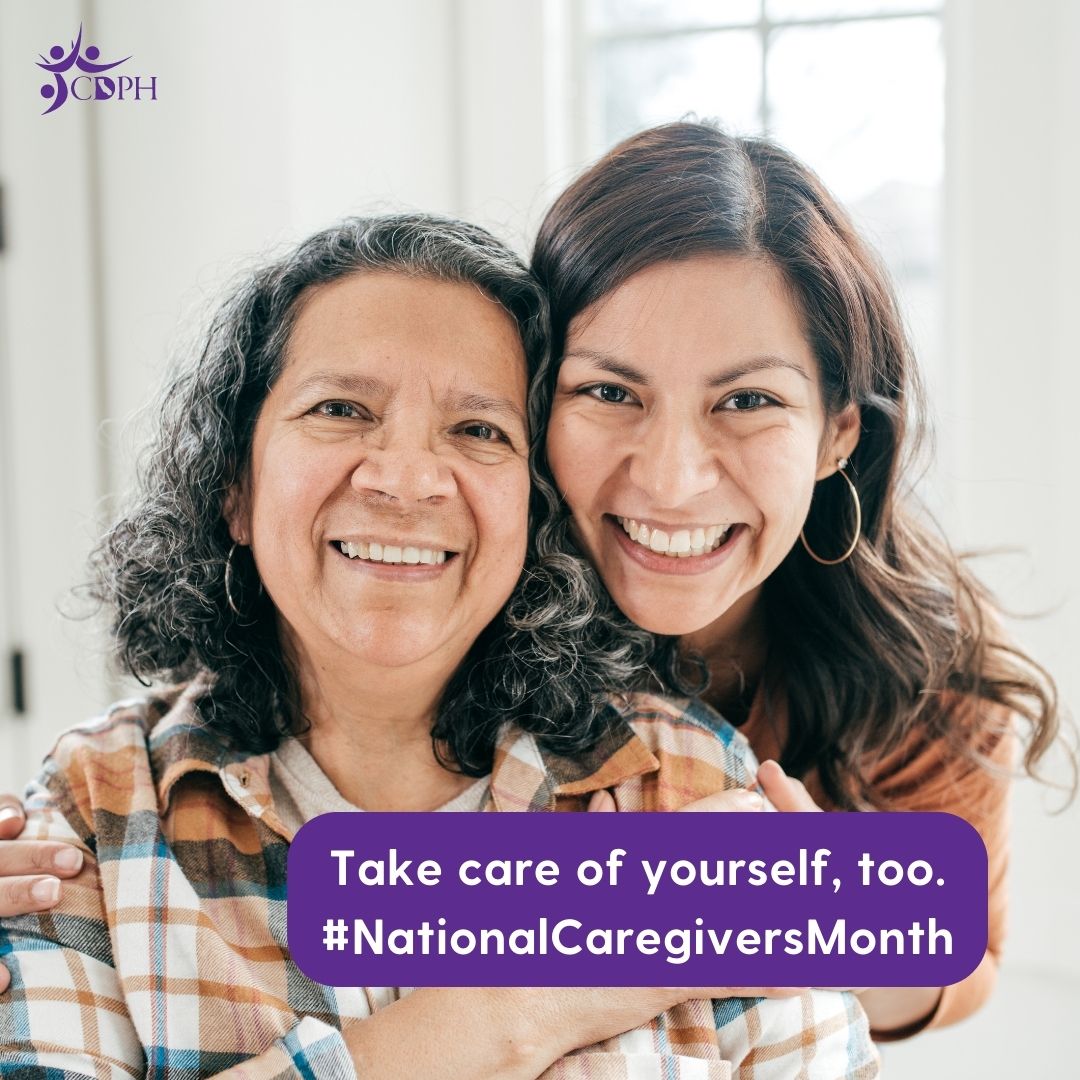 Suggested Messaging: This month is #NationalFamilyCaregiversMonth – a time to recognize and honor family caregivers across California and raise awareness to increase support for caregivers. Many caregivers work and provide care which can make it challenging to maintain their own well-being. As a caregiver, it’s essential to take care of yourself, too. The Alzheimer’s Association has resources to assist you in this role. https://www.alz.org/help-support/caregiving #AlzheimersAwarenessMonth #NationalFamilyCaregiversMonth
|
Spanish Social Media
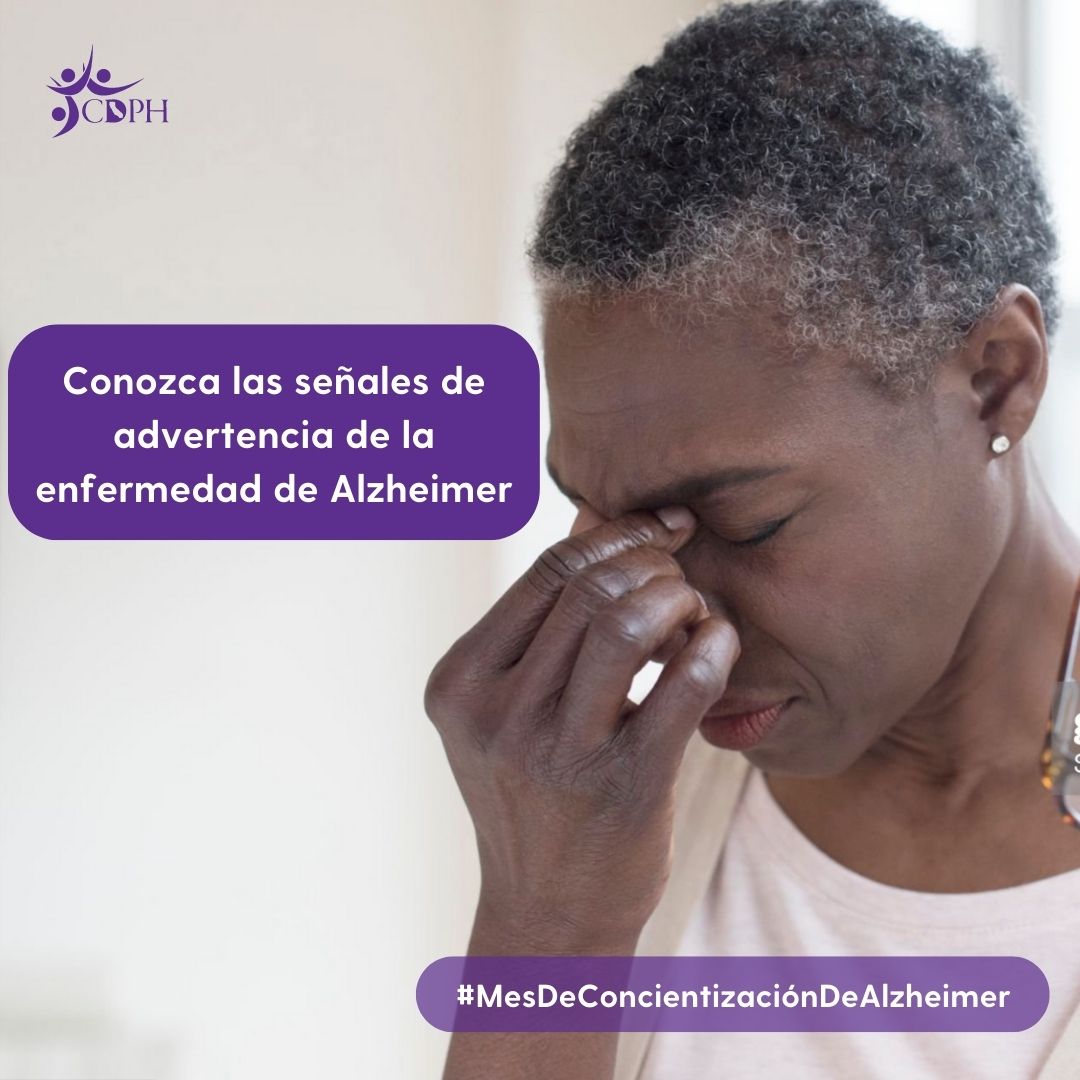 Suggested Messaging:
Noviembre es el Mes de Concientización sobre el Alzheimer. La enfermedad de Alzheimer es la forma más común de demencia y causa problemas con la memoria, los pensamientos y el comportamiento. La enfermedad de Alzheimer no es una parte normal del envejecimiento. Una persona con la enfermedad de Alzheimer puede mostrar signos de: - Pérdida de memoria que interrumpe la vida cotidiana, como perderse en un lugar conocido o repetir preguntas.
- Dificultad para completar tareas familiares.
- onfusión con el tiempo o el lugar.
- Cambio en el estado de ánimo, la personalidad o el comportamiento.
Si tú o un ser querido muestra los signos mencionados anteriormente, consulta a tu proveedor de atención médica. Para obtener más información sobre la enfermedad de Alzheimer y la demencia, consulta https://www.cdc.gov/aging/healthybrain/ten-warning-signs.html #MesDeConcientizaciónDeAlzheimer #MesNacionalDeCuidadoresFamiliares
|
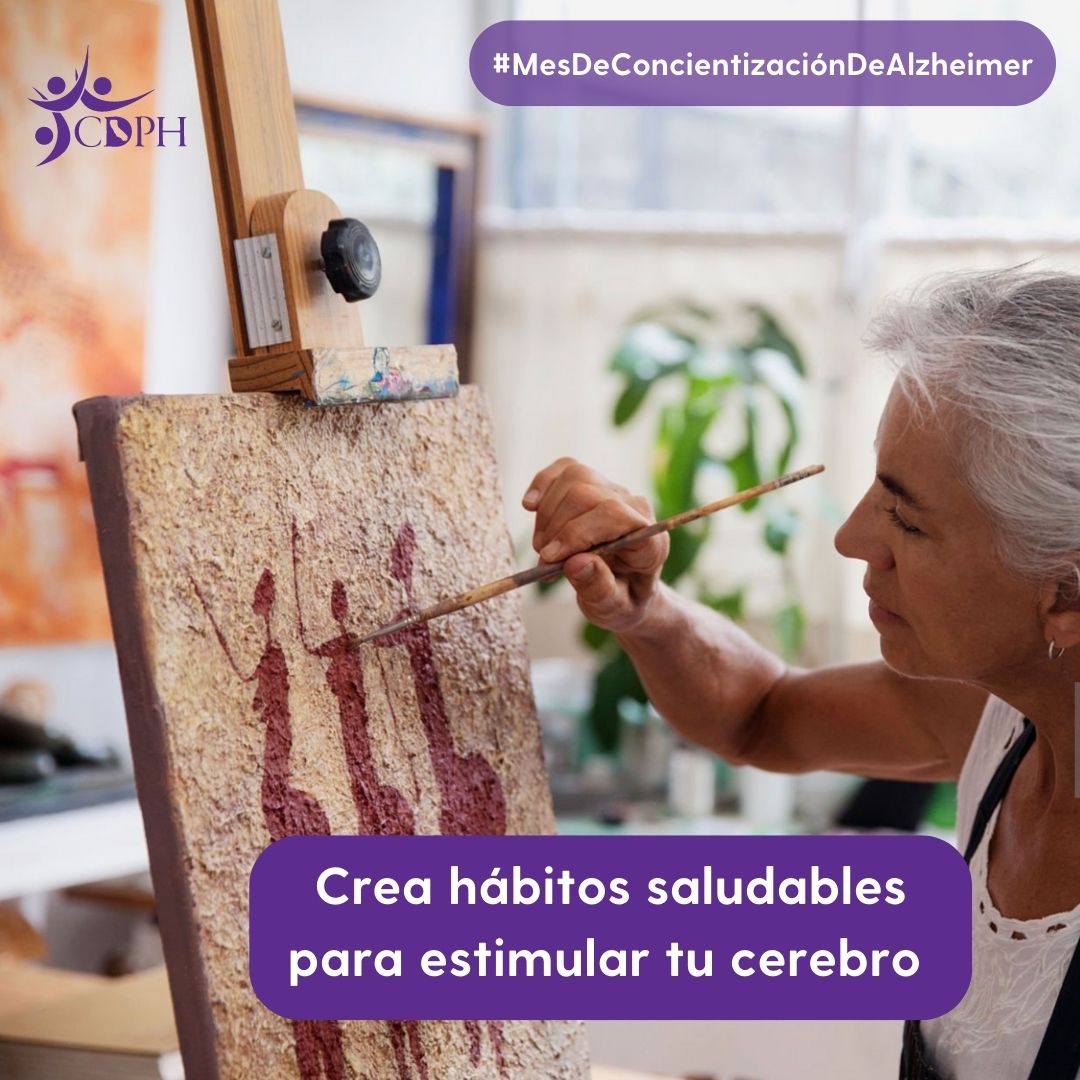 Suggested Messaging:
Las personas pueden reducir su riesgo de enfermarse de Alzheimer y otros tipos de demencia manteniéndose mental y socialmente activas. ¿Sabías que completar un crucigrama, leer un libro o hacer algo artístico puede ayudar a estimular tu cerebro? Para obtener más consejos sobre hábitos saludables para estimular tu cerebro, visita: https://www.alz.org/helpsupport/brain_health/10_ways_to_love_your_brain #MesDeConcientizaciónDeAlzheimer #MesNacionalDeCuidadoresFamiliares
|
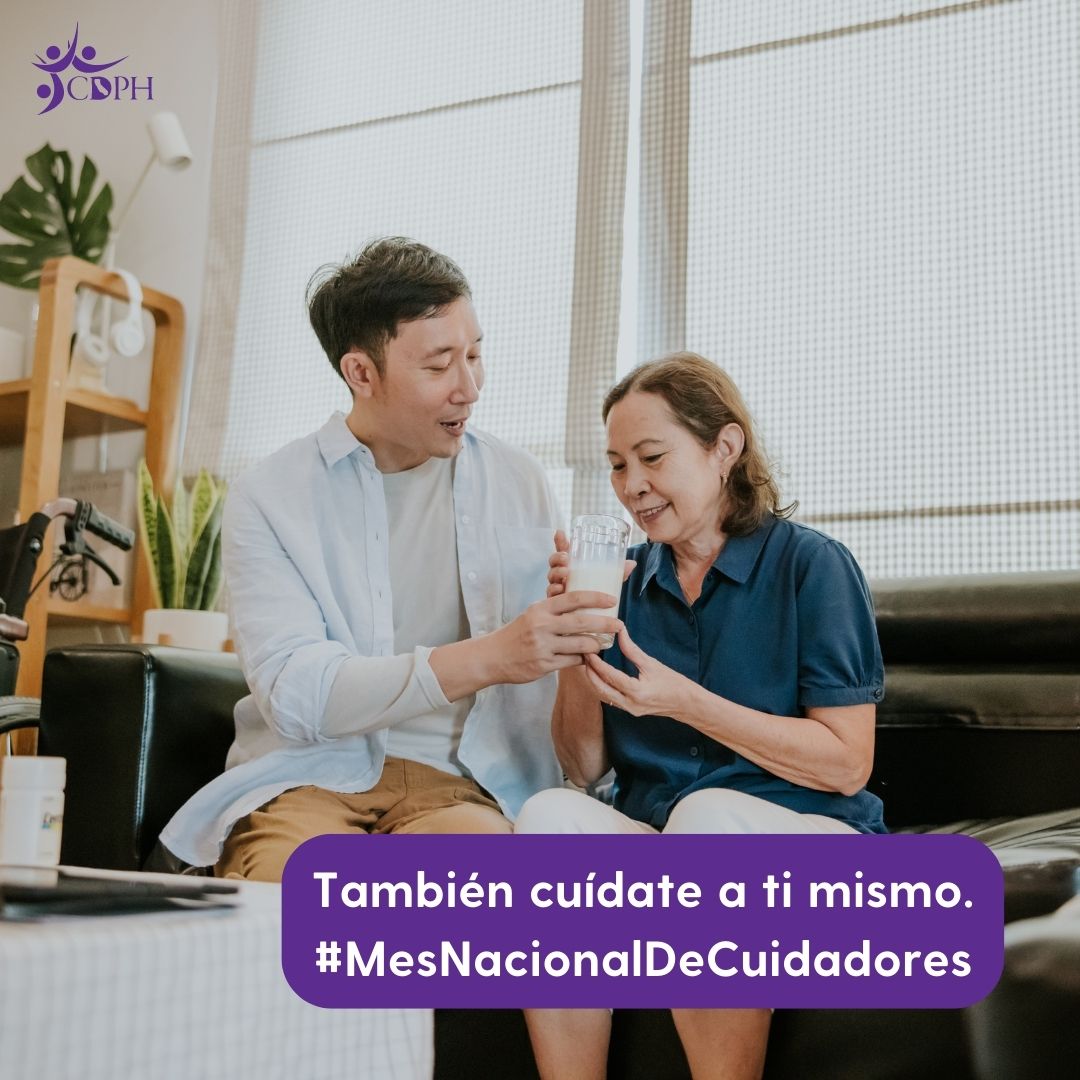 Suggested Messaging:
A menudo, las personas no se dan cuenta de que son considerados cuidadores, pero si estás brindando atención o asistencia a un miembro de tu familia o a un amigo, TÚ eres un cuidador. El Departamento de Envejecimiento de California ha compilado una lista de recursos para ayudarte en este papel. No importa si eres un cuidador nuevo o si ya lo has hecho por bastante tiempo, proteger tu salud y seguridad y la de tus seres queridos es siempre una prioridad. Visita: https://www.aging.ca.gov/covid19/Family_and_Friends_Caregiver_Resources/ #MesDeConcientizaciónDeAlzheimer #MesNacionalDeCuidadoresFamiliares
|
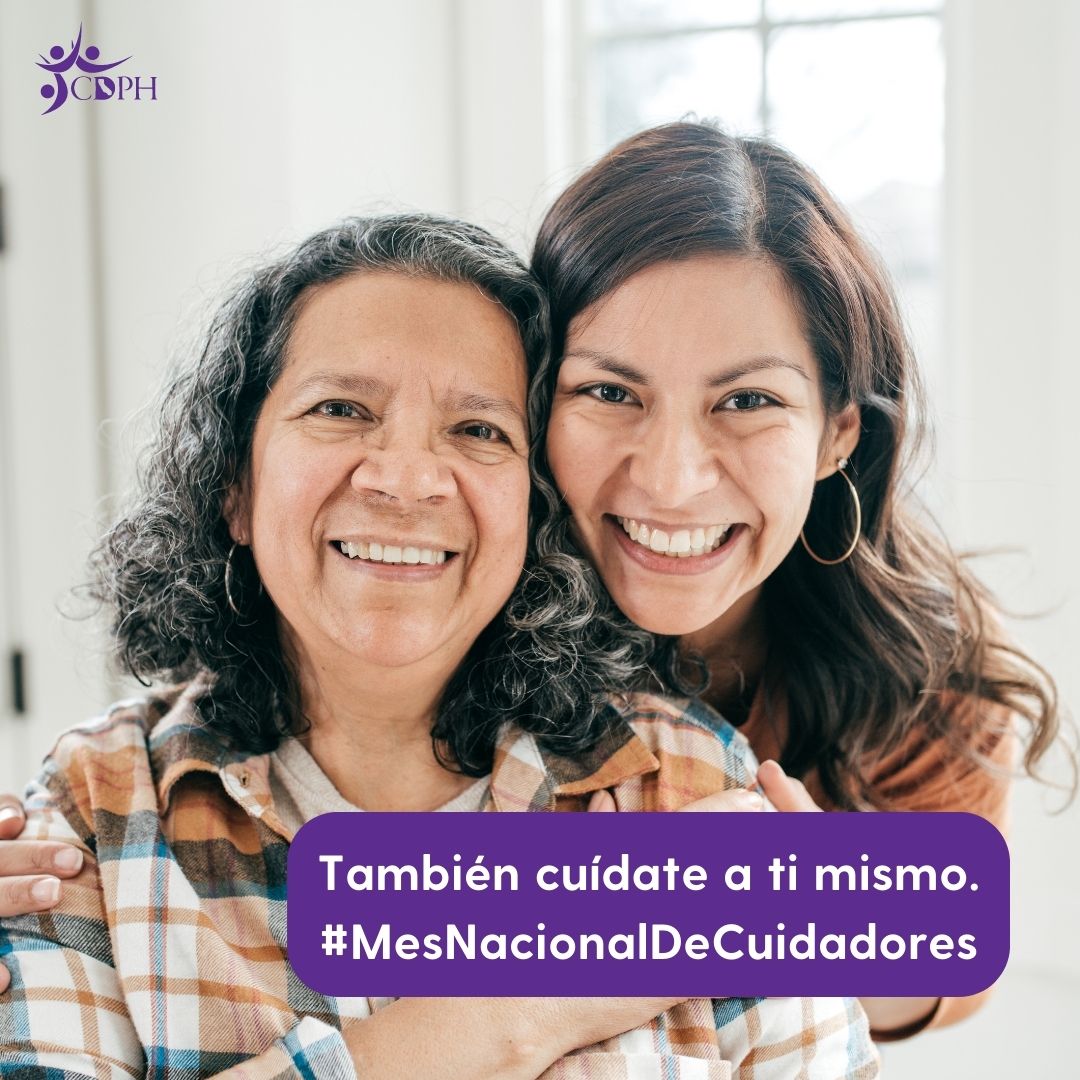 Suggested Messaging:
Este mes es #MesNacionalDeCuidadoresFamiliares -- un momento para reconocer y honrar a los cuidadores familiares en todo California y crear conciencia para aumentar el apoyo que reciben. Muchos cuidadores trabajan y brindan asistencia al mismo tiempo, lo que puede dificultar el mantenimiento de su propio bienestar. Como cuidador, también es esencial cuidarte a ti mismo. La Asociación de Alzheimer tiene recursos para ayudarte en esta función. https://www.alz.org/help-support/caregiving #MesDeConcientizaciónDeAlzheimer #MesNacionalDeCuidadoresFamiliares
|